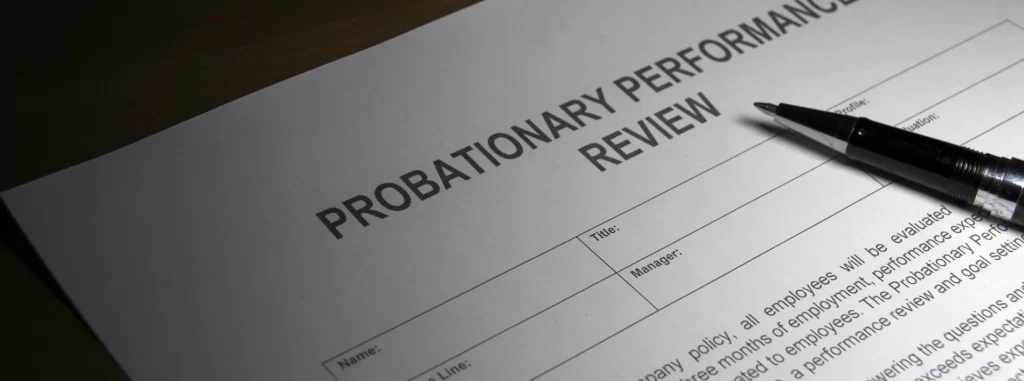
In this article, we explore what a probation period is and why they are so important when an employee first begins their employment at a company.
Probation periods are a critical component of the employment process, serving as an initial phase where new employees and employers assess their fit and performance within an organisation. Typically lasting from three to six months, probation periods offer numerous benefits to both parties, ensuring that the employment relationship is mutually beneficial and that both the employer’s standards and the employee’s expectations are met.
A probation period is a crucial period at the start of employment for an employee to learn their role and see if they fit well with the company.
Your employment contracts should have a probation clause which covers the duration, requirements, potential extension, and termination conditions of employment during the probationary period.
You should also consider performance management during probationary periods, including regular check-ins and clear communication. You should ensure fairness and legal compliance.
It gives time for an assessment of skills and competence: Probation periods allow employers to evaluate the new employee’s skills, performance, and overall job fit. This period serves as a practical test to confirm that the employee can meet the job’s demands and responsibilities.
It can offer the opportunity for the employee and the employers to see if there is a cultural fit: Beyond skills and performance, it is essential for a new hire to fit into the company culture. The probation period provides time to observe how well the employee integrates with the team, aligns with the company values, and adapts to the workplace environment.
It gives the employee a chance to evaluate the role: It’s not only the employer who benefits from the probation period. New employees also get the opportunity to assess whether the job meets their career aspirations, work-life balance needs, and whether they enjoy working within the organisation.
It gives a good opportunity, early on in employment for feedback and development: During the probationary period, employers can provide regular feedback to help the new hire improve and align with the company’s expectations. This period is crucial for identifying training needs and offering development opportunities to enhance the employee’s performance.
In essence, the probation period acts as a safety net, granting the opportunity for both parties to assess their compatibility before committing to a long-term partnership. This makes probation periods an important evaluation period for both the employer and the employee.
Hiring involves significant investment in terms of time, money, and resources. Probation periods help mitigate the risk of hiring the wrong candidate by providing a clear timeframe within which performance and suitability can be evaluated.
Probation periods can provide employers with greater flexibility in managing dismissals or terminations without the lengthy processes required for permanent employees.
Establishing a probation period sets a tone of performance standards and expectations right from the start. It underscores the importance of meeting job requirements and encourages new hires to put forth their best efforts.
Insights gained during probation can inform future hiring practices. Employers can refine job descriptions, interview questions, and selection criteria based on the performance and feedback of probationary employees.
It is important to set expectations in the workplace. The process of setting expectations includes defining an employee’s responsibilities and formulating measurable targets to monitor performance. Without a clear understanding of what’s expected, an employee might fail to meet performance expectations, lose motivation, and ultimately face dismissal.
It is important to include regular check-ins or performance review meetings during probation to help direct the new employee as they discover their role and understand the business. These can help to identify knowledge gaps, skills needed, and specific training requirements.
These check-ins should help them to identify their strengths and areas for improvement and adjust their approach if necessary to enhance their performance. You can also address any issues and concerns in a non-threatening environment.
You may find that a new employee needs time to adjust to their role and it becomes necessary to extend their probation giving them further time to improve and settle into their role. This can happen if the employer and the employee agree or if it is specified in the contract of employment.
If a probation period is extended it is important to document this change properly in writing. This ensures there’s no uncertainty about the contractual terms and continued employment after probation.
Probation periods are an essential aspect of modern employment practices. They offer a structured approach for assessing new hires, mitigating hiring risks, and ensuring a good fit between the employee and the organisation. When managed effectively, probation periods can lead to better hiring outcomes, enhanced performance, and a more cohesive and productive workforce. Both employers and employees benefit from this period of mutual evaluation and development, ultimately contributing to the long-term success of the organisation.
To find out more information or if you require support managing probation periods in your organisation get in contact with our team of experts.
T: 0330 107 1037
LinkedIn: High Performance Consultancy